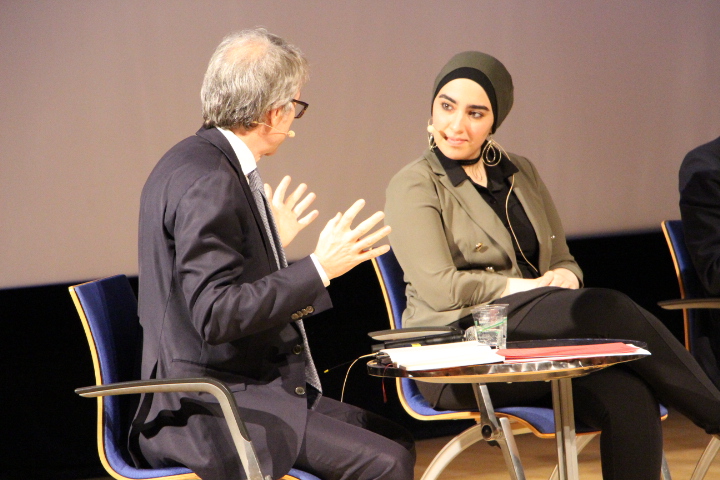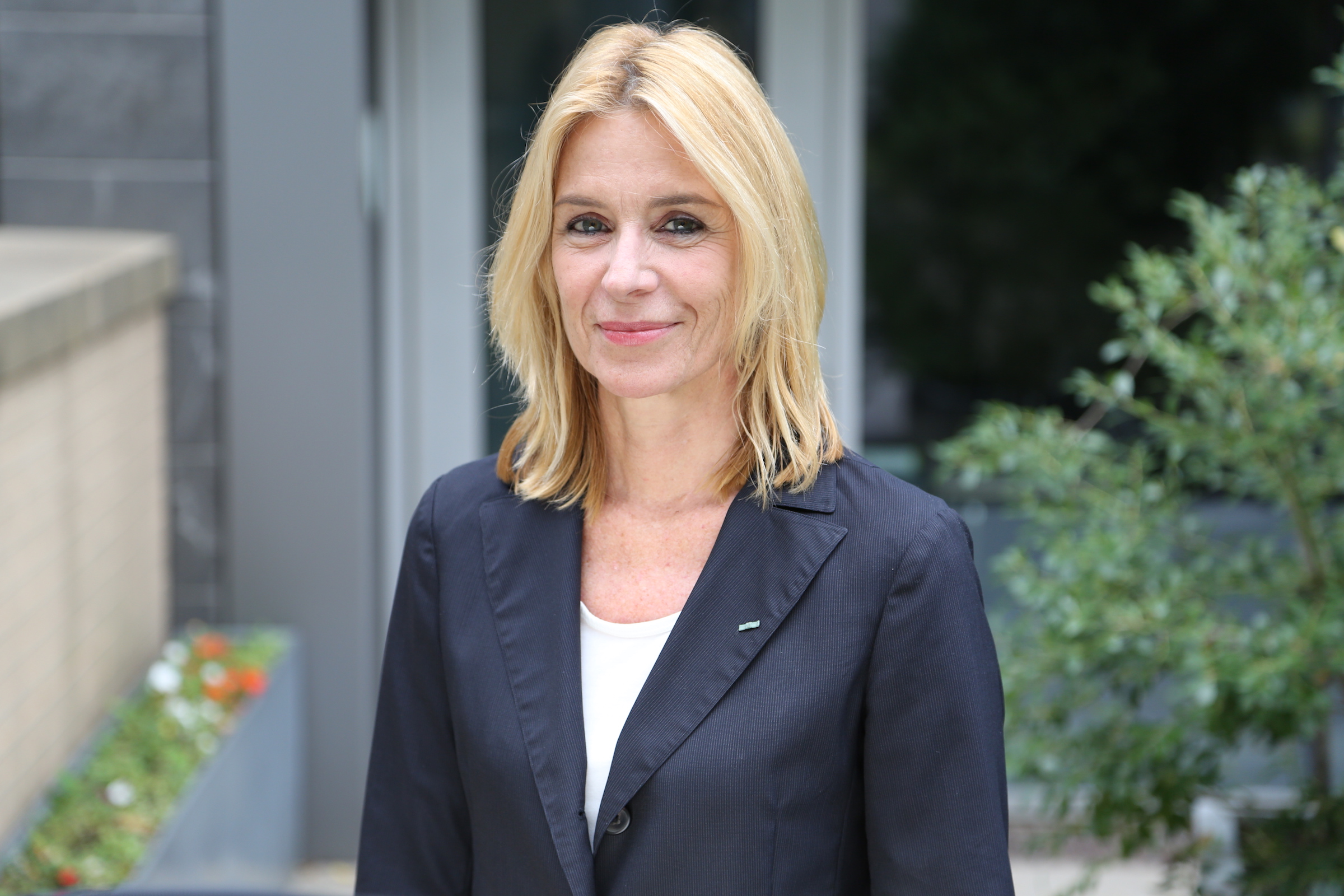On Monday, October 21, 2019, the Cultural Center of the Lycée Français de New York organized a panel on the Circular Economy.
In her introductory remarks, Evelyne Estey, Head of School, acknowledged the importance of this topic. “Being at home in the world means fostering in our students a sense of responsibility for the environment around them. Our work continues through student activities and clubs, as well as co-curricular programs and projects,” said Evelyne, adding that the Lycée Français de New York, member of the Green Schools Alliance, is committed to chase waste and improve recycling at all levels.
For a long time, we lived in a linear economy consuming and throwing away our waste. Today, we are working on creating a recycling economy, processing some of our waste in order to reuse it in other ways. It is great but not enough, was the message coming forward on Monday night: the next and necessary step is the circular economy in which all that is produced is reused with no waste, thus creating a perfect circle.
In his opening presentation, Lycée parent Ludovic Sabot, who together with another parent, Claire Dorey, helped organize the panel, put an emphasis on the famous five “Rs”: rethink, reduce, reuse, repair and recycle. He quoted startling numbers that gave urgency to this motto: An average European car is only driven 5% of its lifetime. While it has a capacity for five people, it only transports 1.5 people per trip. (Source: Ellen Mc Arthur Foundation/ Mc Kinsey) 31% of the food we produce is lost or wasted (UN FAO).
On the stage of the Lycée auditorium sat an array of extraordinary guests who dove deep into the concept of circular economy. “We are primarily looking at waste in the city, but we realize that focusing on the circular economy has longer term benefits for us,” said Farah Albani, Policy Advisor on the Strategic Initiatives team at the New York City Mayor’s Office of Sustainability, adding that progress is made through collaborations with agencies and private partnerships.
Others are also moving in the direction of partnerships. Who does not know TerraCycle? This company founded in 2001 by Tom Szaky, then a student at Princeton University, makes recycling profitable. TerraCycle now operates in over 20 countries and “recycles billions of pieces of waste,” from cigarette butts to tubes of Colgate, through various innovative platforms. Loop is one of them, an eCommerce platform created a couple of months ago that offers reusable packaging to major brands and was launched at the World Economic Forum in Davos. “You go online and you buy your favorite brands, but now you can buy your Haagen Dazs in a reusable package,” said Meriem Hammoutene, US Brand Partnerships Lead at Loop.
What about industrial companies, are they on board? Absolutely, said Dennis Wilson, Director of Sustainability, Environment, Health, and Safety in North America for Saint-Gobain, a French company founded in 1665 that manufactured the glass in the Hall of Mirrors in Versailles. Recently Saint-Gobain joined 87 major companies committed to net-zero carbon emission by 2050. “We are part of the problem and part of the solution,” said Dennis, adding that today, “solutions are not technical but economical”. By controlling the energy that goes into the manufacturing of their products, from construction materials to medical equipment, Saint-Gobain reduces its costs and its environmental footprint.
Is legislation necessary to go one step further? In France, the Anti-waste law on circular economy was adopted recently by the Senate and is being discussed in the House. Frédéric Glanois, Minister Counselor for Economic and Financial Affairs at the Permanent Mission of France to the United Nations, explained the law. It includes an index of reparability on products, the elimination of single-use plastic in two years, and a ban on throwing away new items. “Regulations, incentives, fiscal or non-fiscal, are necessary,” said Frédéric.
In the end, “will the circular economy make us happier?” asked moderator Jean-Christian Agid. All of our panelists seem to agree that living in a no-waste land would elevate our quality of life. So let’s practice the 5 Rs!
About the Author :
Pascale Richard joined the Lycée as director of the Cultural Center in 2011, where she aims to bring the best of French and American cultures through conferences, concerts, films and various events. In the fall of 2012, she launched the school’s Artist-in-Residence program. Pascale was previously Vice President of External Affairs at the French Institute Alliance Française (FIAF). Her background is in journalism and writing with a focus on lifestyle and fashion. She is a graduate of Sciences-po and holds a master’s in journalism from New York University.


